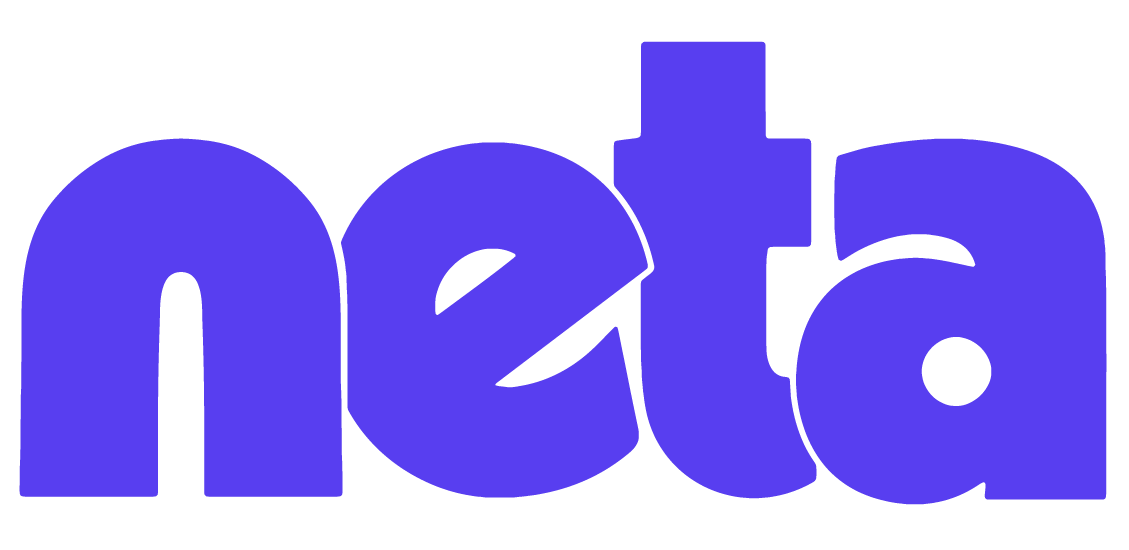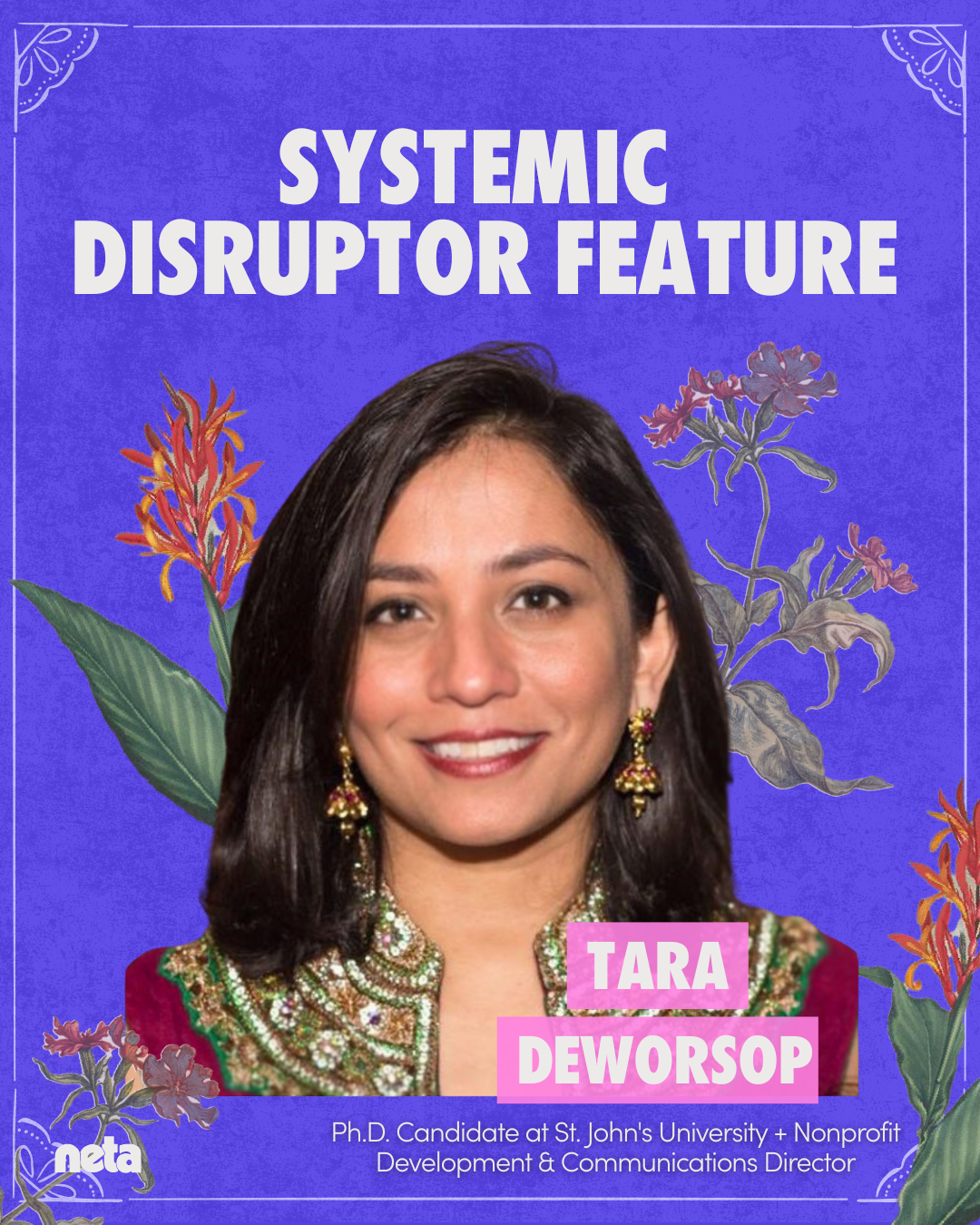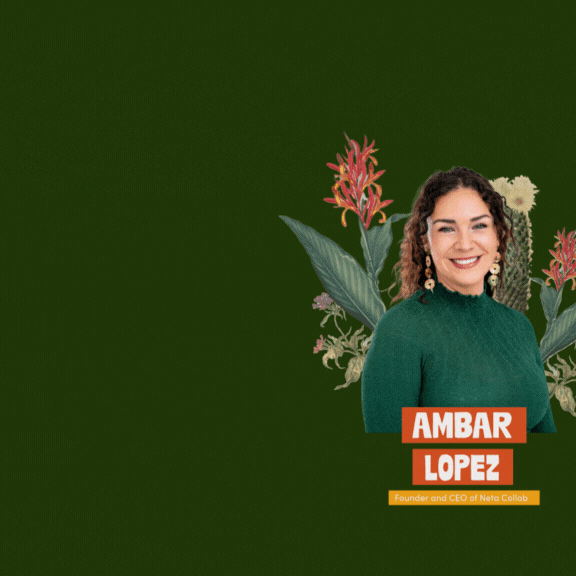The Power of Storytelling and Leading With Empathy: Tara DeWorsop, AANHPI Month Feature
May 28, 2025 | By Alexis Woody
Who are Systemic Disruptors?
Systemic disruptors are leaders who challenge and transform unjust systems through creative, community-centered approaches. They combine cultural power with innovative strategies to address root causes, uplift marginalized voices, and create lasting social change. These changemakers don't just work within existing structures—they reimagine and rebuild them to benefit marginalized and historically underrepresented communities.
Introduction
Tara DeWorsop is a passionate advocate for continuous learning and finds joy in connecting people to meaningful experiences and causes. In both her research and career in development and communications for nonprofits, she is focused on how the stories we tell ourselves and others affect decision-making.
In this interview, Tara shares the importance of storytelling and leading with empathy.
Systemic Disruptor Feature
•
Systemic Disruptor Feature •
Meet Tara DeWorsop, Ph.D. Candidate at St. John's University + Nonprofit Development & Communications Director
Tara DeWorsop is Youth Communication’s managing director of external relations. She has 14 years of experience working in development and communications with international and local non-profits. Her work has taken her across the U.S. and around the globe to countries like Japan, Thailand, China, and South Africa.
In 2016, Tara received her MBA from NYU Stern, specializing in social impact, entrepreneurship, and innovation. She is currently a multi-sector communications Ph.D. candidate.
Tara is a passionate advocate for continuous learning and finds joy in connecting people to meaningful experiences and causes. She truly loves collaborating with organizations like Neta and meeting new people.
Our Conversation
Can you introduce your role in the organization?
In both my research and career in development and communications for nonprofits, I am focused on how the stories we tell ourselves and others affect decision-making.
Stories influence everything we do and inform our values. I share stories that connect people to other people and meaningful causes in the hopes that it will build community, break down barriers, and inspire empathetic action.
What is your organization's mission in three words?
Stories Change Lives.
Why did you become dedicated to working towards this mission?
Connecting resources to meaningful causes is what I do. Most of the time this means I am either fundraising, friend raising, or building awareness and community.
Fundraising, which is a big part of my work, literally means the 'love of humanity' with 'philos' meaning 'love' and 'anthropos' meaning 'humanity.' This work is important to me because it's all about supporting people and making the world better in big and small ways, together.
What is the biggest challenge facing your social issues areas and specifically your work?
One of the biggest challenges facing my work is the message circulating that empathy is weakness.
Empathy is the ability to understand and share the feelings of another. It is the glue that holds civilization together. And, beyond empathy making the world a more enjoyable place to be, it is shortsighted and dangerous to think that we can step on others to get ahead.
Do you have a current campaign or project you are working on you can tell us about?
I am currently in the "ABD" (All But Dissertation) stage of my PhD. I am working to complete my research analyzing 45 years of autobiographical stories written by NYC teens about their lives and what matters most to them.
The vast majority of the writers come from historically marginalized communities. Their voices are usually farthest from mainstream media and part of the reason why it is so important to hear what they have to say.
I am especially interested in looking at how these stories reveal insights into decision making among youth and how this might be influenced by or reflect the social and political changes in NYC over the past four and a half decades. I hope that my research will be useful for educators, policy makers, and anyone who cares about supporting youth!
How can people support your work?
On a personal level, people can support my work by attending the 'town hall' where I will be presenting my research to the broader community this fall! On a broader level, when I think of how we are so trapped in our own echo chambers and listening can be an act of love.
If you want to support young people, marginalized communities, or even just broaden your own perspective, I encourage you to slow down, put down the phone, and have an open and kind conversation with someone who has a different point of view. The work and world needs more open, constructive dialogue!
Meet the Author
Alexis Woody | Director of Marketing & Business Development at Neta Collab
Alexis is a digital marketer with 8+ years of experience helping purpose-driven brands and businesses grow through creative storytelling and strategic marketing. With a people-first approach and background in journalism, she’s led campaigns, built teams, and driven results across industries like hospitality, the building trades, and nonprofits—connecting brands to audiences authentically and impactfully.
She is passionate about migration reform and children’s rights and believes in the power of people-centered storytelling.














